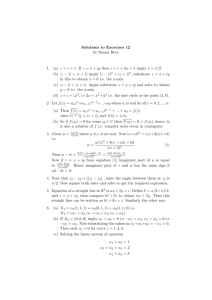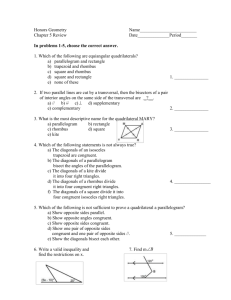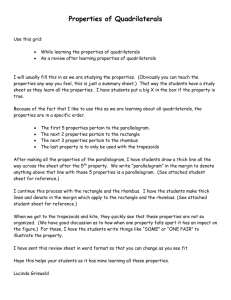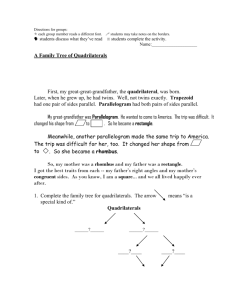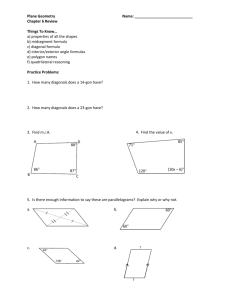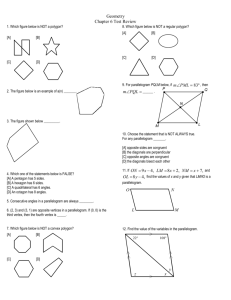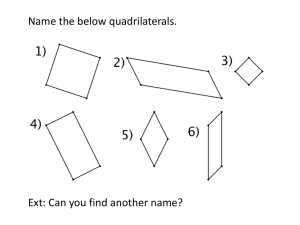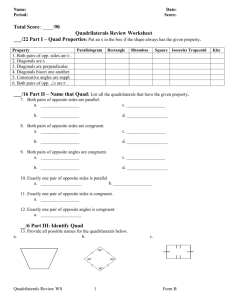7.1 Classifying Quadrilaterals
advertisement
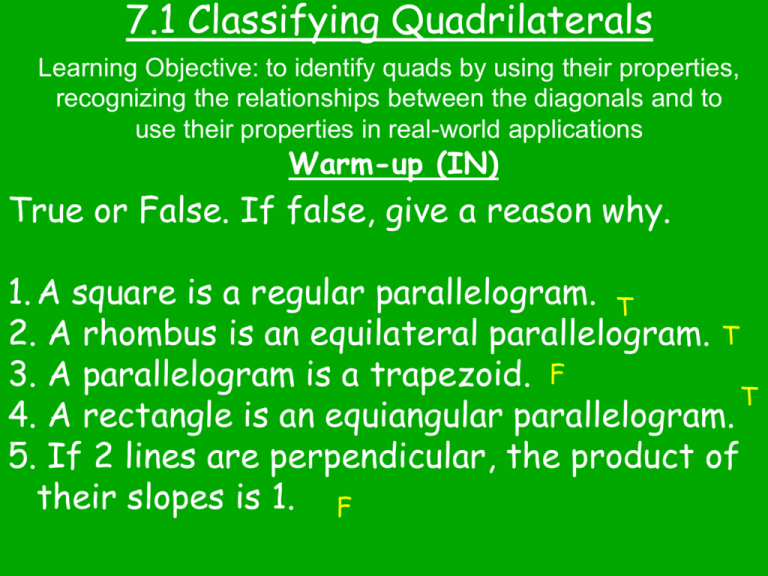
7.1 Classifying Quadrilaterals Learning Objective: to identify quads by using their properties, recognizing the relationships between the diagonals and to use their properties in real-world applications Warm-up (IN) True or False. If false, give a reason why. 1. A square is a regular parallelogram. T 2. A rhombus is an equilateral parallelogram. T 3. A parallelogram is a trapezoid. F T 4. A rectangle is an equiangular parallelogram. 5. If 2 lines are perpendicular, the product of their slopes is 1. F Learning Objective: to identify quads by using their properties, recognizing the relationships between the diagonals and to use their properties in real-world applications Notes Name all of the types of quadrilaterals! Hint…there should be 6! Kite – A quad with 2 pairs of consecutive congruent sides Ex 1 – Create a Venn Diagram using all 6 terms (include a sketch of each shape) Quads trapezoid Kite parallelogram rectangle square rhombus Learning Objective: to identify quads by using their properties, recognizing the relationships between the diagonals and to use their properties in real-world applications Diagonals of a rhombus – Are perpendicular Diagonals of a rectangle – Are congruent Learning Objective: to identify quads by using their properties, recognizing the relationships between the diagonals and to use their properties in real-world applications In a kite – One diagonal is a line of symmetry And it bisects the other diagonal perpendicularly Ex 1 – Given the kite with SR SP, PR=9 units and SR=6 units. Find SL. 1 1 S LR PR 9 4.5 R L P 2 2 SL LR SR 2 2 2 SL 4.5 6 SL2 20.25 36 2 M 2 2 SL2 15.75 SL 3.97 Out – The diagonals of a convex quadrilateral form 4 triangles. In which quadrilaterals are the triangles right? Isosceles? Congruent? Explain! Summary – Today, I think… POW!! HW – p. 343 #6-9, 13-20
